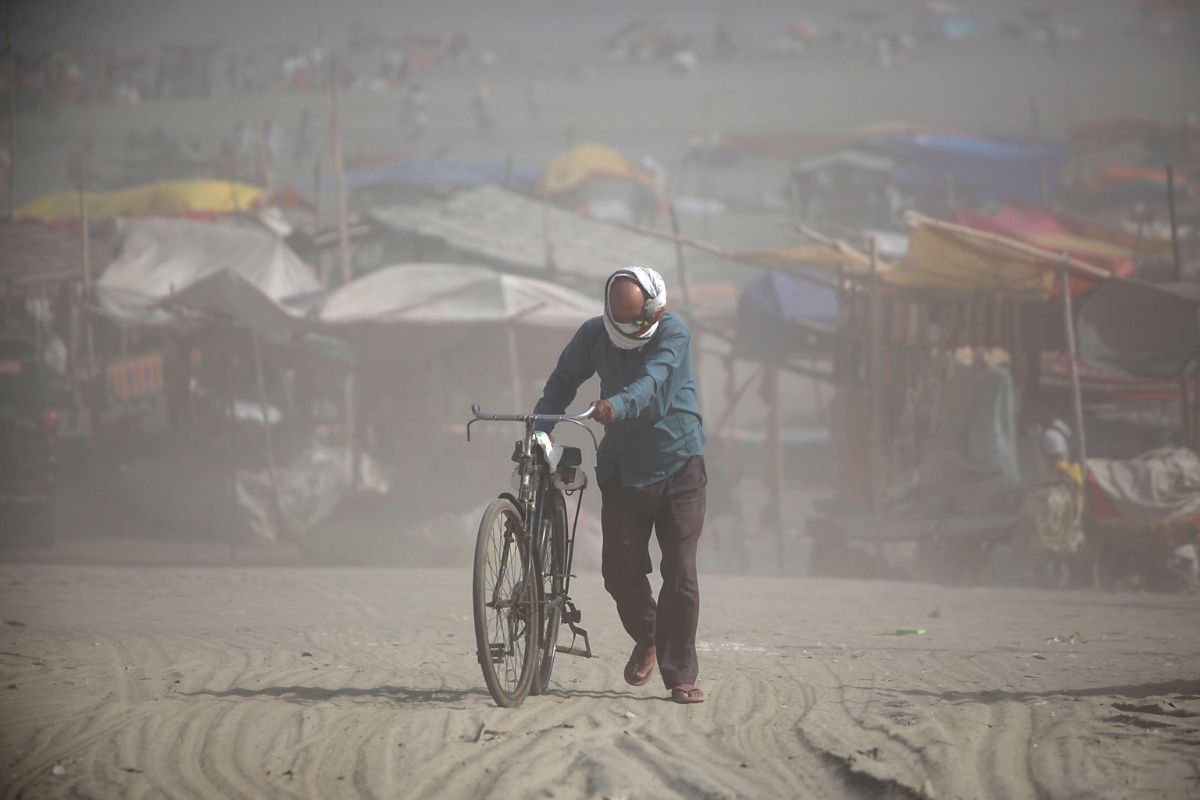The Delhi-NCR region is currently in the throes of an intense heatwave, with temperatures soaring to unprecedented levels. On Saturday, the mercury crossed the scorching mark of 45°C at ten different locations, with Mungeshpur in northwest Delhi recording the highest temperature at a blistering 46.8°C. This extreme heatwave has prompted the India Meteorological Department (IMD) to issue a ‘red alert’ for the entire region, cautioning residents about severe heat conditions expected to persist in the coming days.
At Delhi’s base station, Safdarjung, the maximum temperature peaked at 43.7°C, marking the highest reading of the season thus far. Other areas registering temperatures above 45°C include Ridge, Ayanagar, Gurgaon, Faridabad, Jafarpur, Najafgarh, Noida, Pitampura, and Pusa. Notably, Najafgarh claimed the title of the hottest location in the country on Friday, with temperatures soaring to a scalding 47.4°C.
The IMD has issued warnings indicating that the heatwave is likely to persist over the next week. Residents are urged to take precautions to avoid heat exposure and stay adequately hydrated to mitigate the risk of heat-related illnesses.
Furthermore, the IMD forecasts heatwave to severe heatwave conditions in many parts of Punjab, Haryana, Chandigarh, and Delhi, along with some areas of Uttar Pradesh, West Rajasthan, East Rajasthan, Himachal Pradesh, Uttarakhand, Madhya Pradesh, Gangetic West Bengal, Bihar, Jharkhand, and Gujarat state.
Additionally, hot and humid weather is expected to prevail over Sub-Himalayan West Bengal, Odisha, and Konkan & Goa, while warm night conditions may persist in isolated pockets over East Rajasthan.
Some precautions you can take during a heatwave
Staying hydrated is essential, especially during hot weather. Make sure to drink water regularly throughout the day, even if you don’t feel thirsty. Additionally, consider alternatives like oral rehydration solution (ORS) or homemade beverages such as fruit juice, buttermilk, or lemon water to replenish electrolytes and stay hydrated.
To beat the heat, it’s important to stay cool. Seek refuge in air-conditioned spaces or use fans to circulate air. Taking cool showers or foot baths can also help lower your body temperature. Additionally, applying cool water to your skin or clothes can provide instant relief from the heat.
Protecting yourself from the sun’s rays is crucial to prevent heat-related illnesses. Wear light, loose-fitting clothing made of breathable cotton fabric to stay comfortable. Donning a hat, sunglasses, and sunscreen can shield you from harmful UV rays and minimize the risk of sunburn.
Whenever possible, seek shade to avoid direct exposure to the sun, especially during the hottest hours between 11 AM and 3 PM. Utilize umbrellas or awnings to create additional shade and reduce the risk of overheating.
During periods of extreme heat, it’s advisable to avoid strenuous activities that can increase your body temperature. Refrain from exercising or engaging in vigorous tasks, particularly during the hottest parts of the day. If you need to be active, take frequent breaks in cool or shaded areas to prevent overheating.
Planning ahead can help you stay safe during hot weather conditions. Schedule outdoor activities for cooler times of the day, such as early morning or late evening. Additionally, keep in touch with family and friends to let them know you’re okay, and check in with those who may need assistance or support during the heatwave.
Keep Reading
Part 1: Cloudburst in Ganderbal’s Padabal village & unfulfilled promises
India braces for intense 2024 monsoon amid recent deadly weather trends
Support us to keep independent environmental journalism alive in India.
Follow Ground Report on X, Instagram and Facebook for environmental and underreported stories from the margins. Give us feedback on our email id greport2018@gmail.com.
Don’t forget to Subscribe to our weekly newsletter, Join our community on WhatsApp, and Follow our YouTube Channel for video stories.






